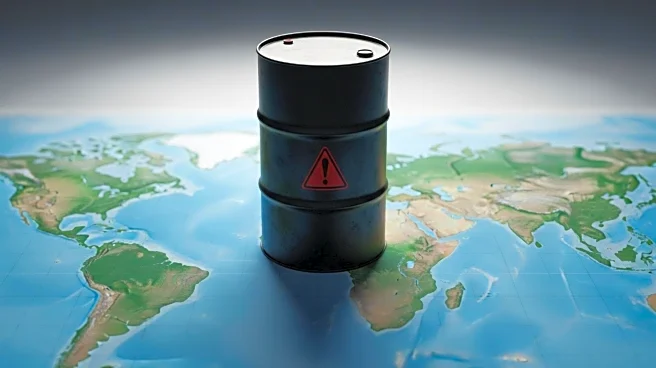What's Happening?
A new report highlights that governments worldwide are increasing coal, gas, and oil extraction, jeopardizing climate goals. The Production Gap 2025 report, compiled by the Stockholm Environment Institute, Climate Analytics, and the International Institute for Sustainable Development, analyzed 20 major fossil fuel producers, including the U.S., Russia, and China. The report reveals that many countries plan to ramp up fossil fuel production, contrary to commitments made at UN climate summits to transition away from fossil fuels. If these plans proceed, global fossil fuel production in 2030 will exceed levels consistent with limiting temperature rises to 1.5C above preindustrial levels. The report calls for urgent action to correct course and reduce fossil fuel reliance.
Why It's Important?
The report underscores the critical need for countries to adhere to climate commitments to prevent catastrophic global warming. Increased fossil fuel production risks exceeding the carbon budget necessary to maintain temperature rise within 1.5C, leading to severe environmental consequences. The findings highlight the tension between economic interests and environmental sustainability, with potential negative impacts on global climate policy and economic stability. Countries that fail to transition to renewable energy may face economic and environmental repercussions, including climate chaos and significant negative economic impacts.
What's Next?
The report's release coincides with upcoming meetings between world leaders and the UN Secretary-General, where fresh commitments to reduce greenhouse gas emissions will be urged. The UN hopes countries will strengthen their climate commitments and leverage private sector investment to support the transition to renewable energy. The report calls for rapid reductions in coal, oil, and gas investments, redirecting resources towards equitable and just energy transitions.









